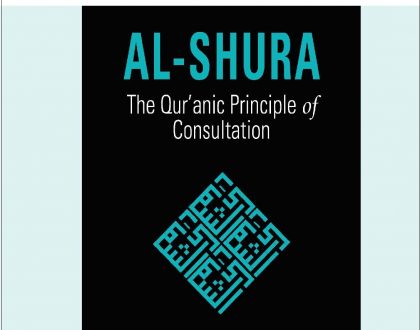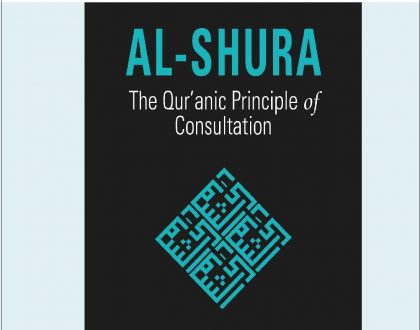AEMS BRIEF #9: FACILITATING PERSONAL TRANSFORMATION FOR THE NEXT GENERATION OF LEADERS; LESSONS FROM EMPIRICAL RESEARCH
In order to investigate these varied contexts of human development and educational transformation, we selected values and competencies grounded in theories of social change and tipping point literature. These values were organized based on a review of previous literature and the hypothesis of the research team. A review of the the categories highlighted in the report and some of their implications for education researchers, policymakers, and practitioners can be found in our previous briefs. A more detailed review of the measures, their scales, and the methodology of the surveys can be found in the report itself. In order to conduct research at this scale, we relied heavily on our local research coordinators on the ground in each of the 16 countries.
In order to conduct research at this scale, we relied heavily on our local research coordinators on the ground in each of the 16 countries. In addition to generally positive remarks about the rigor of the study and its potential implications, two consistent pieces of feedback from respondents have been relayed back to us through these coordinators scattered across the globe: that young people are enthusiastic about the opportunity to discuss social values and personal transformation, and that they are particularly interested in reflecting on issues of diversity, equity, and inclusion. While young people across all contexts were able to engage with these critical issues, educational regimes in participating countries vary greatly in the extent to which they support that engagement. In some countries, Social Emotional Learning and Multiculturalism are deeply embedded in the general curriculum, in others, barriers to these sorts of liberatory conversations still exist. AEMS is actively interested in social transformation and the promotion of holistic thriving for young people across the globe. Particularly salient comments from our research coordinators are presented here alongside additional commentary about the diversity in Islam and some considerations for 21st century youth.
***
“Among the impressive stories, the pupils’ interest in diversity and respect for the different points of view stands out to me. Especially when students were comfortably expressing themselves in the answers.”
– Soukaina Taoufik, Morocco
“The significant implication of this research is to ascertain the role of constructs that receive little attention in education literature in Tanzania, such as empathy, forgiveness and sense of belonging.
– Dr. Jaha Mulema, Tanzania
These two quotes neatly represent the conundrum that AEMS seeks to resolve: that young people are interested in discussing things like diversity, empathy, forgiveness, and sense of belonging, but that these issues receive little attention in research and policy realms, particularly when compared to the dominant educational ideologies of the recent past. The type of holistic education paradigm that AEMS aligns itself with is one that not only pays attention to empathy, forgiveness, and sense of belonging in addition to more traditional measures of academic achievement, but that goes a step further and privileges the cultivation of these skills as one of the essential tasks for educators. In order to create an environment where students feel comfortable to express themselves on these issues, we need to train educators to be equally comfortable to do the same. This starts with building the body of literature that engages these topics, disseminating their lessons widely, and breaking the stigma associated with openly discussing issues that have previously been left out of the public discourse.
“Many participants explained that these are exactly the sort of questions that are not openly discussed in society, but that many people contemplate within their own minds and hearts. In one case, a teacher from a village began to cry while filling out her survey. She explained that one of the situations described in the questionnaire was something she had been dealing with in her own life, and that reading it in the questionnaire gave her a new way of looking at the situation. Many schoolchildren said that now they would be more careful with their friends and with society, and others said that they began to wonder about the meaning of life for the first time.”
– Zarina Duishegolova, Kyrgyzstan
This quote illustrates the potentially transformative nature of these critical conversations. The AEMS initiative believes that the three core values of open-mindedness, responsibility, and collaborative collective, are universal. In other words, that they carry essential weight across socio-cultural and political contexts. The teacher in question’s breakdown also reveals a perhaps uncomfortable truth: that in many cases younger people are better prepared to have these conversations than their adult educators. This is because the suppression of these topics from open discussion is a learned behavior. Taboos and prejudices are taught to children, and it is young people who most often force society to reckon with these existential questions. Think of the youth leaders driving climate activism around the globe or the American students forcing gun control legislation. Being a holistic educator is challenging because it requires adults to be vulnerable with their students and to admit their own blind spots and insecurities; but it is all the more rewarding to see young people step into these spaces with bravery and compassion.
“Bosnia and Herzegovina is a society still very much divided along ethno-religious lines. Although Muslims according to the last census represent slightly over 50% of total population, conducting a research study entitled “Advancing Education in Muslim Societies” is challenging in itself.”
– Professor Aid Smajic, Bosnia and Herzegovina
“It was striking that in our findings, religiosity had the highest mean for all categories of respondents across school type, ethnicity and gender. However, only two of the three major ethnic groups had religiosity as the highest means. There are some implications of this research for the Malaysian community, especially in terms of schools’ ethnic composition and values of empathy, self-efficacy, community connection, and so on.”
– Professor Rosnani Hashim, Malaysia
“Many stated that it was an opportunity to learn about themselves and ask questions “they have never asked themselves before” about the important issues of forgiveness, self-efficacy, autonomy and belonging. Instructors revealed that the study is highly interesting for Algerian education reform. This is all the more the case when we consider the Algerian context of trauma and the heated debate around national identity, memory and the challenges of globalizing processes.”
– Dr. Ahmed Abdelhakim Hachelaf, Algeria
It is important to note that it is not just the individual teacher’s hangups that can prevent these conversations from happening. After all, these patterns of behavior are learned for a reason. Political regimes are often actively invested in the suppression of these values. In the introduction to Paulo Freire’s treatise, “Pedagogy of the Oppressed,” Richard Shaull makes the point that “there’s no such thing as neutral education. Education either functions as an instrument to bring about conformity or freedom.” In countries with a history of ethno-religious conflict and division, choosing not to engage with questions of open-mindedness and collective responsibility at school may feel like a safe or neutral act, but it only delays the inevitable. Collective trauma will manifest itself eventually if it is left unacknowledged, and educators aiming to prepare their students for a fulfilling life in an increasingly globalized world need to consider identity, sense of meaning, and empathy as key elements of that preparedness.
“Mauritius is a multicultural island and Muslims are a minority. When we conducted the survey we included also non-muslim participants. Indeed for us it is a success story to be in a classroom and to create an inclusive atmosphere. After completing the questionnaire teachers said the students were reflecting on the questions and discussing with their friends.”
– Dr. Jabeen Soobratty, Mauritius
Just because it is difficult, does not mean it is impossible. Every conversation facilitated by this empirical study is a step towards the more inclusive, more open-minded, more socially responsible, collective future we imagine. The diversity of religion is recognized by Islam as a part of Providence (Vahiduddin, 2007), and among the world’s 1.6 billion Muslims spread across the globe there is a wide range of diversity, even with regards to their faith. Educators should consider that one of the first steps towards creating an inclusive world is creating an inclusive classroom. Just as prejudice and silence can be taught, so too can empathy and open-mindedness.
As this work continues, we hope that you will engage with us in thinking through the implications of this research. You can do that by responding to this email with any thoughts, by following us on Instagram (@iiit_insta) and Twitter (@iiitfriends), and by forwarding this message to anyone in your life who might find it interesting.
Thank you and all the best,
Alex Koenig,
Non-Resident Fellow in Human Development and Education Policy
The Advancing Education in Muslim Societies (AEMS) Team
The International Institute of Islamic Thought.
https://iiit.org/en/home/
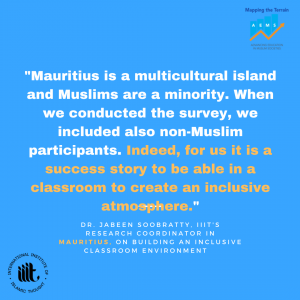
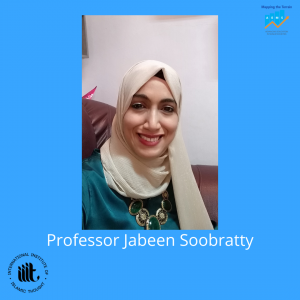
Recent Posts
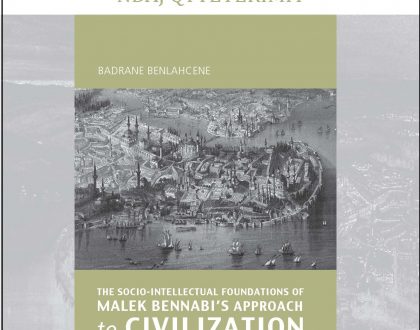
Albanian: Themelet Socio-Intelektuale të Përqasjes së Malek Bennabiut ndaj Qytetërimit (Books-in-Brief: The Socio-Intellectual Foundations of Malek Bennabi’s Approach to Civilization)
July 16, 2025

